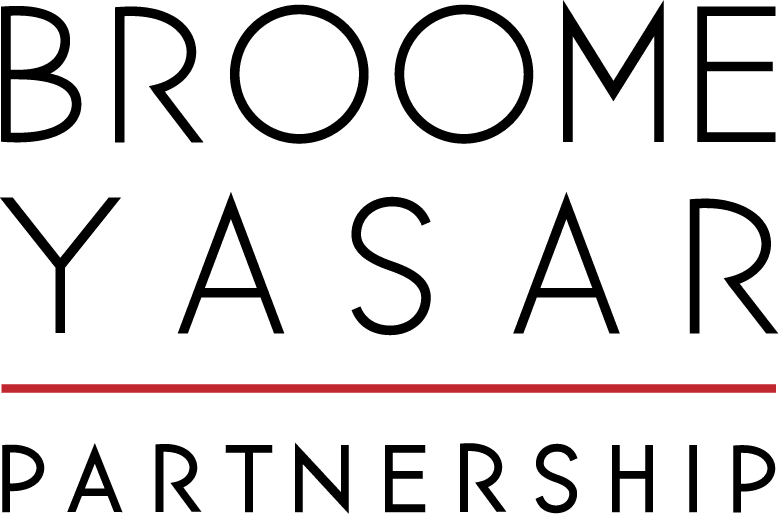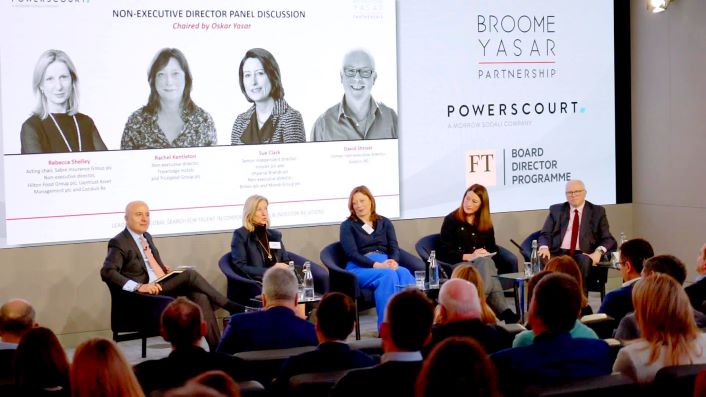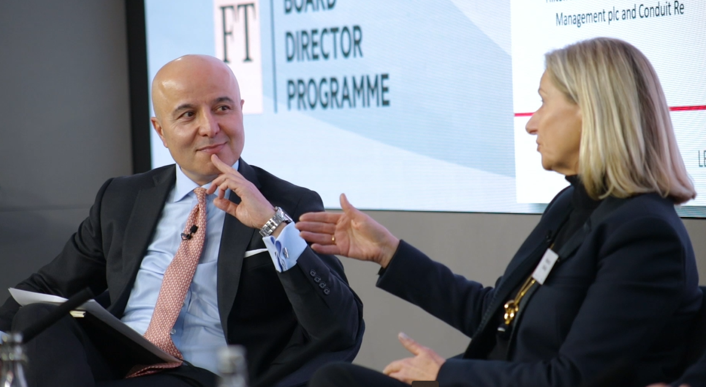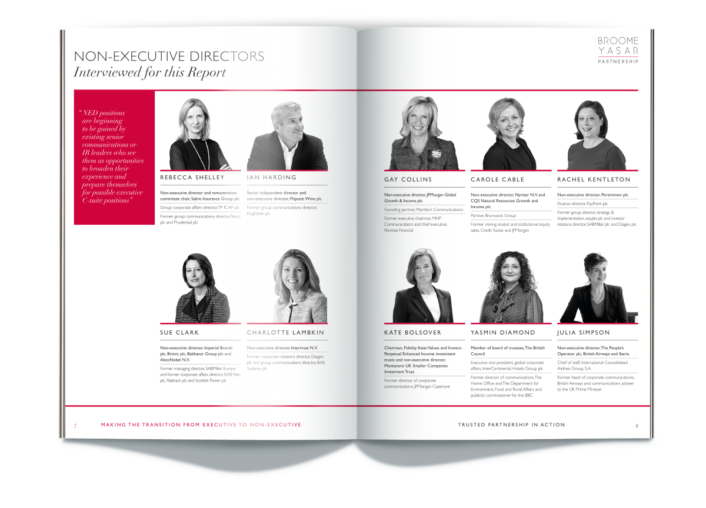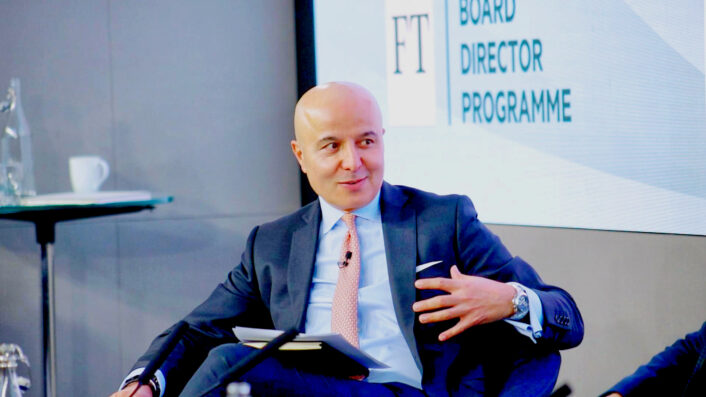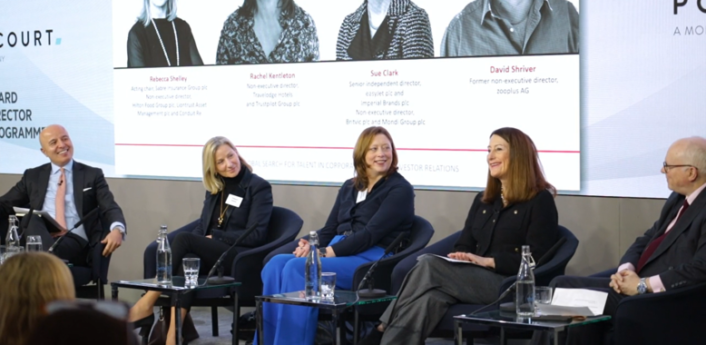INSIGHT
From executive to non-executive
How do you land that first NED role?
From Corporate Affairs & IR to Non-Executive Director Panel Event
in association with Powerscourt and the FT Board Director Programme
For listed companies, ever-tightening regulations around disclosure, compliance and ethics have led to a hunger for Board directors with experience in reputation management, sustainability, and social and environmental welfare. Enter: senior corporate affairs and investor relations practitioners, increasingly being brought in to take up non-executive directorships (NEDs/SIDs). It is further evidence that, today, our careers in communications and investor relations are limited only by the boundaries of our own ambitions. How, then, can IR and corporate affairs executives broaden their impact and their personal brands by securing a non-executive directorship?
Broome Yasar hosted a high-level panel discussion at LSEG to explore this question. In association with Powerscourt and supported by the FT Board Director Programme, four panellists with corporate affairs and IR backgrounds, who have now acquired years of experience as NEDs, gave the benefit of their wisdom. It’s all part of our continuing belief at Broome Yasar that, the more we can promote and evidence those leaders who’ve started to break through, the more it will smooth the path for those who want to do it in future – or even those who harbour aspirations beyond a NED, into wider business leadership.
How do you get your first NED role?
As both a CV-builder and a broadening of your leadership expertise, the opportunity to become a NED is invaluable. You gain greater appreciation of issues affecting different companies, and that feeds back into your day job. But getting started is a Catch-22. Once you’ve landed your first NED position, you’re much more likely to be recommended for more. But how do you get on that first rung of the ladder without any previous experience?
Make the right use of your networks
Great networks are key, said our panel. “Several of the referrals I had for Boards came through people I’ve previously worked with,” said Rebecca Shelley who is a non-executive director at four companies: Hilton Food Group plc, Sabre Insurance, Liontrust Asset Management plc and Conduit Re. “So make sure you’re keeping in touch with people who know you, who’ve worked alongside you – because, in a way, the first stage of referencing is already complete if you’re being recommended by someone.”
Build complementary experience in-house
Several panellists landed their first non-exec positions simply because their employer actively encouraged its executives to do so as part of broadening their skillsets. For Sue Clark, though, it was the opposite – her organisation actively discouraged her, fearful that it would hamper her 24/7 availability for her executive corporate affairs role. “But what they did encourage me to do was sit on advisory Boards and subsidiary Boards of the business, and some of those were with external parties (where, for example, we had bought into private companies),” she explained. “So that helped me enormously, because I got the opportunity to sit as a non-executive on internal Boards and, through that, built skills and experience that would then translate later into my external non-exec roles.”
But you need to tell them openly about your aspirations. “I think for your first NED roles, you need to pursue two strands – one with headhunters, the other with your network – and you need to manage the two together,” advised Sue Clark, senior independent director at easyJet plc and Imperial Brands plc, and non-executive director for Britvic plc and Mondi plc. “My advice would be to be specific with both of them. Obviously, as communications professionals, we have wide networks but telling them that you want to be a NED – or just telling them about your wider career aspirations – is the way that doors open.”
She also advised communications professionals to think laterally. “Something that’s not talked about enough, in terms of positioning yourself for NEDs, is chairing things like trade associations and working groups. I did those early on and it just shows that you can operate outside of the realm of communications.”
Consider charities, NGOs and private companies
Indeed, our panellists were keen to point out that there are a whole range of options outside the plc world, allowing you to build out a Board position and position yourself to get your first non-exec directorship with a plc. “Private organisations can be a fantastic way to build your profile and get experience – not just private businesses, but also charities and not-for-profits,” advised Rachel Kentleton, non-executive director and audit chair for Travelodge Hotels and Trustpilot, and former NED at Persimmon plc.
“It’s also a good thing to do because it just gets you plugged into being on a Board and the conversations you’ll be having,” added Rebecca Shelley. “Charities often welcome first-time trustees because you’ve got the expertise and energy they need. And it does teach you about Board papers, chairing, the dynamics of the boardroom, and so on.”
“And there are a lot of similarities between being a trustee or supervisory Board member of a charitable organisation, and being a NED for a listed company,” agreed David Shriver, who was a non-executive director at zooplus AG, but has also sat on the Boards of charitable organisations such as Wimbledon Book Festival and the Polka Theatre.
“Fundamentally, human dynamics are human dynamics. So being able to ask the right questions; being able to support the executive but also hold the executive to account; being able to understand the nuts and bolts of an organisation so you can constructively help; being able to engage a range of different stakeholders – that’s all the same in any kind of governance structure.
And particularly if something is meaningful to you (for example, I’m passionate about the charities I’m a trustee for), then having an opportunity to make a difference as well as learning about the dynamics of a Board is incredibly rewarding.”
But Sue Clark sounded one note of caution on this front: “You do also have to think about what works best for you,” she said. “I did a charity, and it didn’t work for me, for a number of reasons – people on a charity Board can have very different ways of working; there’s often a different quality to the people support; and frankly, at that time, I was running a $7 billion business whereas, for the charity, we were talking about a million pounds. So it was in a very different paradigm and, frankly, I just couldn’t get my head around it.”
What to expect from a NED position
Clearly, a non-executive role is very different from an executive position and that can be an abrupt shift of operating mode. It’s a unique team dynamic, with its own delivery expectations – and you will have to do different things to prove yourself. So before embarking on this path, you want to be sure that you are ready and prepared for what it will entail.
Be realistic about the ladder
“You won’t come in immediately as chair of a committee, at least not unless you’ve chaired a committee elsewhere,” says Rebecca Shelley. “Typically, you would first be put on the Remuneration Committee, Sustainability Committee, Risk Committee, something like that, and that will be your stepping stone to getting to know the business. You have to be willing to serve your time and participate wherever there is a need. Across my four NED roles today, I’m a senior independent director (SID) at one, and at the other three I variously chair the Remuneration Committee, the Sustainability Committee and the Responsible Capitalism Committee. These were not necessarily my personal passions, but areas where there was a need, and I had an expertise or some experience that fit those positions. So it’s a jigsaw that is very carefully thought through and really quite dynamic.”
Be ready for the time commitment
Perhaps the trickiest part of being a NED is simply being available. Working on a Board is not an occasional commitment. There are meetings you must attend, material to scrutinise, research to do and decisions to be made – and if it clashes with your executive role, and the executive role must come first, then you can face a real challenge.
“So if you have a full-time executive career, you have to consider: Do you have the time to devote to a NED role?” agreed Rachel Kentleton. “Because you will be doing two jobs. As just one example, there is a lot of paperwork to get through. The typical cycle is that Board papers come out on a Friday, and you can sometimes be reading many of them in a weekend – even hundreds. So you’re generally going to have to give up your weekend to really look through your papers thoroughly, making notes so you can then quickly get any clarification areas before the meeting (because if you don’t understand something, you’ll need to check in with the paper’s author ahead of time, so that you’re not slowing the Board conversation down). So you don’t just walk into a boardroom and it’s ‘all there’. You have to put a fair amount of groundwork in. So if you’re not somebody who likes a lot of paperwork, a lot of detail, or who isn’t willing to devote lots of time to it, that’s something I would signal.”
“Your executive career has to take precedence, but a Board expects the Board to take precedence, and that is a great conflict – or it can be,” agreed Rebecca Shelley. “And when you’re joining a Board as a new non-exec, remember that you’re joining an established team who have established ways of working. So you might be on an analyst visit to Tokyo, say, and everyone on the Board is emailing about something that needs approval immediately, and you’re in a different time zone, or on a plane.”
Be ready to adjust to a different working model
You’ll also find the pacing, levels of autonomy and ability to effect change very different to those in your executive role, said our panel, not least because Boards are fully collaborative units. “One thing I learned is that well-functioning Boards really are teams – teams of people who are working together to do the right thing for the business,” said Rebecca Shelley. “It’s not about you. It’s about the business and how you work together to effect change.” Rachel Kentleton agreed: “I don’t think you go into a NED position with as strong a sense of ‘I’.” David Shriver added: “The Board’s source of strength is that the sum of the parts is greater than the individual constituents.”
Then there are the horizons you’re working towards. “In the corporate affairs world, as a rule, things happen fast,” explained Rebecca Shelley. “But on a Board, you’re thinking much longer term and, sometimes, you know that something’s going to need to happen – that change is needed – but you have to bring people with you and you need to allow the right time for it to land properly. So that’s a very different paradigm.”
In part, that’s because you have to adjust your own expectations about how you can effect change. “For me, the biggest difficulty was getting used to not having your hands on the levers,” said Sue Clark. “So you can see an issue, you know what needs to happen and how it needs to happen, but you need to find different mechanisms to persuade the management team to take action. It’s a big leap and often quite tricky to manage personally.”
Why the time is ripe for you to be a NED
But if you can devote the time to it, have a passion for the company’s work, and can adjust to a very collaborative working model, being a NED can be not just a tremendous CV builder but a fantastic aide to personal and professional growth. “I see it as a second stage of my career,” said Sue Clark, “and when you do a number of non-execs, it’s very helpful because you can bring different skills across that range of businesses – and it’s also amazing to learn how similar some of the issues are across different companies. I enjoy it very much.”
The influencing skills you bring are in demand
The time is ripe, too: For a long time, Boards were stacked with balance-sheet-focused executives, because the Board’s fundamental requirement – to assess the seaworthiness of the company ship – primarily meant an ability to scrutinise its P&L. It meant that, for decades, the classic NED profile was always an experienced leader from finance, legal, accounting or marketing.
But in today’s world of reputational uncertainty, when the intangibles of the brand are as intrinsic to market value as the organisation’s hard assets, communications professionals not only have much more to offer – they’re positively in demand.
“I think the ability to influence people is a crucial transferable skill from corporate affairs and IR,” said Sue Clark. “Board members don’t have the levers for change that they have in their daily roles as executives, and that can be frustrating for them. But as corporate affairs or IR directors, we’ve never really had our hands fully on the levers, so we’ve all had to learn how to influence people to get things done. Those persuasion skills you’re bringing are incredibly useful to the Board in helping them realise their goals.”
“And in particular,” added Rachel Kentleton, “in communications, you become very adept at influencing CEOs and CFOs — and that’s very transferable to the Board role, because that’s a crucial thing they need to be able to do.”
You have a perspective others can’t offer
Rebecca Shelley was keen to point out that the high levels of empathy learned in communications were important, too. “Also the ability to ‘bring the outside in’,” she said. “It’s quite easy for other business executives to be very focused on their own internal world but, as comms directors, we are always horizon scanning – looking at what’s going on in the outside world, what shareholders are thinking, what’s in the media, where does the brand sit. That ability is a real value add to bring to the Board.”
“And there’s something very important about our ability to step back and look at the entirety of a situation, rather than the specifics,” added Rachel Kentleton. “So applying a lens of common sense to a situation, saying, ‘How will this actually be seen by people in reality?’ It can actually be the crucial element a Board needs to take some action they might otherwise find difficult – like whether it’s time for a CEO to be moved on, or whether you’ve got quite the right talent in different functions.”
“And that speaks to the other thing we bring, which is breadth,” said David Shriver. “What’s unique about all comms roles is that you have a licence – indeed, maybe a mandate – to sit down with everybody in the business. Most of my fellow executives wouldn’t regularly go and sit with our tech people, for example, to talk about the business. But that is what I do in my comms role. So you’re able to see the business in a holistic way that your senior peers don’t have time or scope to do. You’re the one that keeps bringing that vision to the business you’re working in – and, as a non-exec, to the Board that you are serving on.”
“I also think the people side is really important,” added Sue Clark. “Especially in communications and corporate affairs, we do think every day about employee engagement, internal communications, change and transformation. And that instinct to ask, ‘What are the implications of some of these decisions for our own people?’ is not something that, actually, all Boards have front of mind when they’re thinking about company decisions.”
IR Professionals bring invaluable market understanding
And IR directors, in particular, clearly offer financial and market expertise that naturally translates to the auditing elements of the Board’s role. “From IR, you’re obviously very confident at reading financial statements, studying how shareholders and analysts think, and you’ve got deep experience of the capital markets (whether it’s equity raises or IPOs or circulars),” said Rachel Kentleton. “So you understand the financial mechanics – but also the mechanics of dealing with emerging issues that concern Boards, like shareholder activism, or market-sensitive developments like the sudden departure of a key executive.”
How to know if it’s right for you?
How then, should you assess whether interviewing for a NED position – or accepting an offer of one – is the right thing for you? “Whenever I’ve looked at non-exec roles,” advised Rachel Kentleton, “the judgment has been, first, can I bring something to the role? Am I qualified to do it? Number two, will I learn something? Number three, can I work with the people involved? Will they be trusting relationships? And finally, it’s capacity. I have sometimes been in a process for three NEDs at the same time and you just have to say, I don’t really want to take that many at the same time. Because the whole process – of getting to learn a new organization, going through the induction process, establishing relationships, getting up to speed – means you’ve only got so much capacity. It’s just making a judgment call at that point about what feels right in terms of chemistry, but also the mix of businesses that you want to be involved in.”
Sue Clark advised relying on what you know and love: “I think you want to join a Board that you enjoy. You’re going to spend a lot of time on it and, while you do get paid, it’s not at the scale you get as an exec. And, for me, I enjoy the Boards where I actually understand the business. Certainly, I think for your first Board, going where you really understand the business model is so much more helpful, because that gives you the confidence then to ask the questions. I have done NEDs that were quite a stretch from what I’d done before and I just never felt that I could add the same level of value as those in industries where I had executive experience.”
“The starting point is: Can I add value?” agreed David Shriver. “And, as an executive, does it add value to my primary employer, because my first care of duty of care is to them? I think the learning I took from my own NEDs transferred some value to my employer because I became better able to ask questions; better able to interrogate a narrative; better able to understand the dynamics of how businesses work. I would also always advise that you be led by conviction, by enthusiasm and by passion: What do you just love doing? What do you want to learn? One of the most amazing things about human beings is our infinite capacity to learn. Whatever Board role you’re on, you’re learning different things, but fundamentally you’re learning those very human skills about how you can take a group of individuals with different skills and diverse backgrounds and, through good governance structures, make an organisation fundamentally better. Focus on that and you can’t go far wrong.”
Conclusion: A vision for broader Boards and a greater role for corporate affairs and investor relations
Despite the progress documented in our recent ground-breaking study and on the back of the second of our NED panel events, corporate affairs and investor relations professionals are now taking up places on boards because their key roles at the heart of corporate brands and reputations position them ideally to contribute to and influence decision-making over what are, after all, many organisations’ greatest assets.
As our study made clear, a confluence of factors is driving this belated but increased presence. As well as the importance of reputations and brands and those who know how to manage them, they include the other talents that reside in our small but growing complement, several of whom have served on major company executive committees.
The requirement for more diversity on boards is clearly assisting the trend and it is probably no accident that the vast majority of non-executives with communications and investor relations experience are female. However, communicators and IR professionals are much more than seat-warmers or corporate governance-pleasing box-tickers in the decision-making boardrooms of our companies.
They are there because their roles place them centrally in the lives of modern companies, their relationships with stakeholders, their media presence and image and their experience of dealing with the demands of employees and customers as well as journalists and stock market analysts.
Non-executive positions are not sinecures. Our interviewees and the panel testify to the difficulty of obtaining their roles and are only too aware of the responsibility. For the communications and IR industries, the growing recognition of the contribution their senior professionals can make to other companies’ boards can only be a beneficial development.
Both industries have long had to vie with advertising and sales, as well as with the disciplines of accountancy and law for recognition within companies and the emergence of their practitioners in boardrooms is long overdue. However, this is not a certain or an inevitable career route, as several of our panellists have confirmed. Despite the progress made, communications and investor relations departments are far from the first places chairmen look for non-executive talent.
Whether these promising beginnings develop into another major career route for communications and investor relations professionals is very much in the hands of those in the industry who hold or aspire to these positions. It is up to them to broaden their skill sets, develop deep knowledge beyond their immediate briefs and hone boardroom wisdom if they want to take advantage of the opportunities presented. With thorough planning, non-executive roles can be added to the road map of options in communications and investor relations careers.
Our industry has come a long way; its future limited only by its own ambition.

